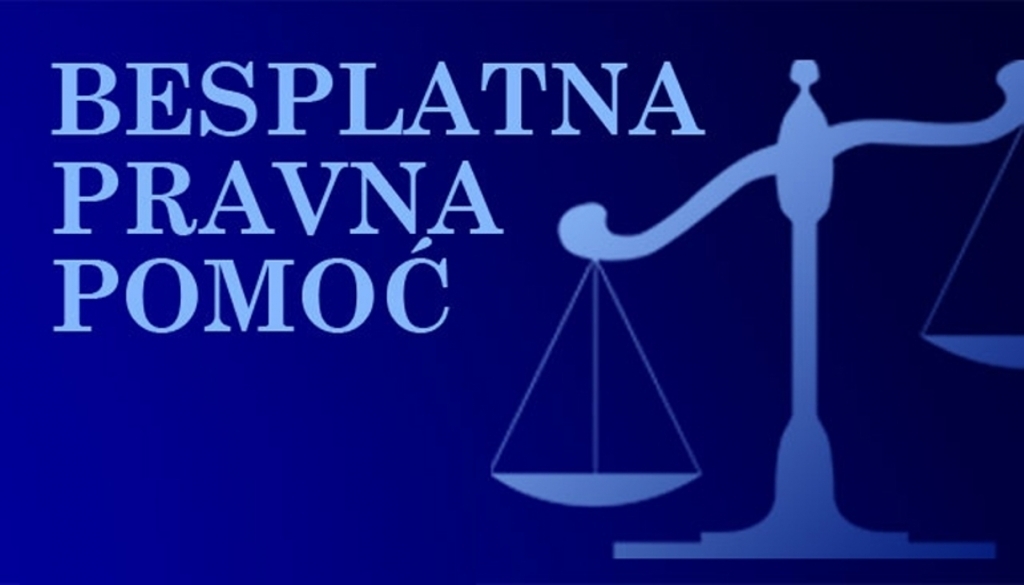
Free legal assistance exists in Bosnia and Herzegovina to ensure that everyone has equal access to justice and the right to a fair trial.
In practice, however, these services are fragmented, uneven, and sometimes not available to everyone. Additionally, many citizens are unaware of this option.
Kata Šitum Soldo explained that when her child was denied rehabilitative care, she filed an appeal through a lawyer, which cost more than she could afford.
“The biggest obstacle is the system’s insensitivity towards the vulnerable,” Soldo said, adding that parents of children with disabilities are not sufficiently informed, and many single mothers do not even know that free legal assistance exists.
She said that mobile teams and legal clinics would be an ideal solution for reaching out to those in rural communities, so they know that their needs are important.
Despite a 2014 law calling for the establishment of an institute for free legal assistance in Mostar, it was more than a decade before the institute was opened. In April of this year, the director of the institute was finally appointed, and preparations began to start operations.
In the Federation of BiH, free legal assistance is provided through cantonal institutes. The Republika Srpska entity has five centers in five cities, and there is a Legal Assistance in Brčko District. At the state level, the Ministry of Justice also operates an Office for Free Legal Assistance.
The Ombudsman for Human Rights in BiH collects data on the accessibility of free legal assistance. Last year, they received two complaints about these services being denied. In one of these cases, an institute canceled the power of attorney in a labor dispute, which resulted in the intervention of the Ombudsman.
Recognizing the inequities of the current system, in 2023, the European Commission called on BiH to complete a legal framework to ensure equal access to legal services across all entities and cantons.
According to the Ombudsman for Human Rights, people from low income communities are the most vulnerable, as they lack the means to pay a lawyer and thus protect their rights. Their right to legal representation is thus limited by their financial circumstances.
Building Public Trust
Citizens who meet certain property ownership and income criteria are entitled to free legal assistance. Based on existing legislation, this includes the socially disadvantaged, the unemployed, people with disabilities, children, victims of violence, returnees, and other vulnerable categories.
“All citizens can get general information about their rights and obligations. Our goal is for no one to be left without legal advice simply because they can’t afford a lawyer,” said Aida Zerem, director of the Free Legal Assistance Institute of Herzegovina-Neretva Canton (HNC).
Zerem was appointed as the director of the institute in April. She explained that her decision to accept the position was driven by the belief that access to justice is a basic human right and the institute can play a key role in upholding it.
She recalled that the institute started from scratch and that their biggest challenge was balancing tight deadlines with high public expectations. “We focused on preparing the office space and technical aspects like inspecting the equipment and drafting the necessary documents for operations,” she explained.
The institute has just one employee. The HNC government adopted a rulebook on internal organization that established procedures for personnel management and hiring, which will begin following the approval of next year’s annual budget.
Zerem noted that their goal is to establish themselves as a mechanism for protecting citizens’ rights and to help build public trust in the judicial system.

After many years of waiting on institutions, citizens are also skeptical about the institute’s work.
“I understand their doubts, but the institute is there, it has a space and a legal framework. We need personnel reinforcement, and then we will work at full capacity. Our message to citizens is clear: contact us, we’re here for you,” said Zerem.
The institute can be contacted in person or by phone, e-mail, or post. Zerem emphasized that their work will be founded on transparency, openness, and public accountability as they collaborate with civil society and undertake educational initiatives.
A key actor in establishing the institute was the initiative Mostar Right to Legal Assistance, led by the Dignitet Association.
“After more than ten years of waiting, seeing that the institution is really functioning and that citizens can exercise their rights is an extremely significant impact of our joint effort,” said Dignitet Association Director Edisa Demić.
She explained that for years, citizens turned to non-governmental organizations for legal assistance because the institute wasn’t operating. Some still go to them today, but are referred to the institute. “Trust is growing and collaboration with the new director is very good,” said Demić.
She added that the institute must remain present on the ground, open, and recognizable in the community, and that the HNC should invest more in public outreach through campaigns, social media, and direct interaction with citizens.
“Continuous communication and transparency are key to ensuring citizens understand that justice belongs to everyone,” said Demić.
Education Matters
The Ombudsmen warns that the differing models for providing free legal assistance in BiH can lead to unequal opportunities for citizens.
Professor Nurko Pobrić from the Džemal Bijedić University Law School in Mostar views the existing legal framework as a solid basis for the future development of the system. He believes that cantonal institutes are publicly accessible and not a dead letter, as many often think.
“As far as I know, citizens can exercise their rights in practice, and in most cases, the institutions operate in accordance with the law,” Pobrić said.
Asked about discrepancies among entities and cantons, he says that he doesn’t see any significant regulatory differences, although he admits that a unified and coordinated approach would enhance the system’s efficiency and reputation.
Pobrić notes that public mistrust of institutions has an impact on citizens’ use of free legal services: “Citizens often have the feeling that institutions don’t serve their best interests, which deters them from seeking help. More communication, public campaigns, and examples of good practice are needed to change this.”
In his view, universities can play an important role in bringing this topic to the attention of future lawyers and the general public.
“In addition to legal clinics, students could visit free legal assistance institutes for practical lessons. These experiences would enhance their education as well as their empathy and understanding for the most vulnerable categories of citizens,” said Pobrić.
He said that education, practices, and trust form a triangle that can transform perceptions of law from an abstract concept into a real instrument for equality.
The establishment of the HNC Institute is recognized as an important step towards ensuring the right to a fair trial and equal access. However, the Ombudsmen for Human Rights warns that without stable financial and systemic support, the institute will not be able to fulfill its mission.
“Our goal is for citizens to know that they are not alone, that they have someone to turn to, and that justice is not a privilege but a right for everyone,” said Zerem.
It remains to be seen if the cantonal model will grow into a truly functional network that will provide equal opportunities to all citizens of BiH, regardless of whether they live in Mostar, Banja Luka, Trebinje, or Brčko.






